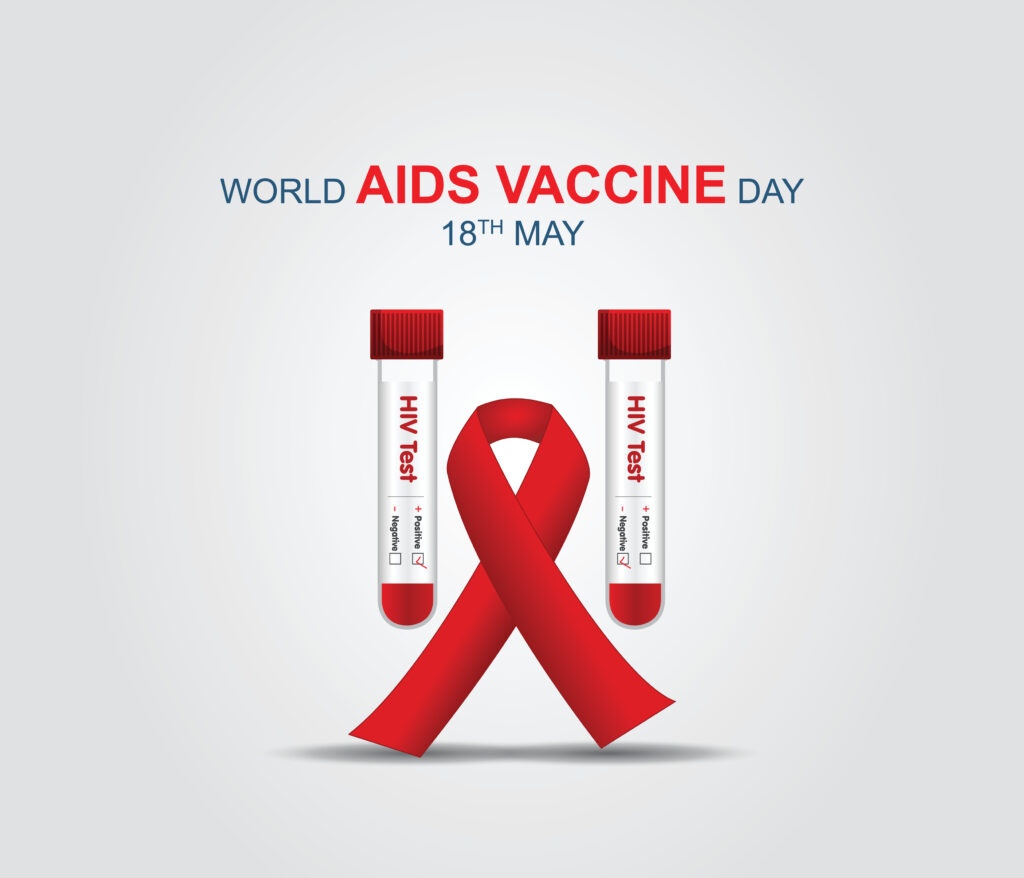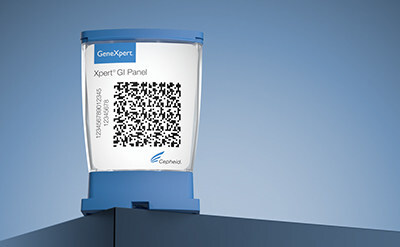Every year on May 18th, the global community commemorates World AIDS Vaccine Day, also known as HIV Vaccine Awareness Day. This day isn’t just a reminder of the medical challenge to find a safe and effective HIV vaccine, but also a tribute to the undertaking that has both challenged and intrigued researchers for over three decades.
Led by the National Institutes of Health’s National Institute of Allergy and Infectious Diseases (NIAID), World AIDS Vaccine Day emphasizes the importance of awareness and education in the fight against HIV/AIDS. It’s a day to celebrate the scientific strides made towards a vaccine and to remember the work that still lies ahead. It’s also a day to amplify the voices of those living with HIV and to challenge the stigma that surrounds this virus.
World AIDS Vaccine Day is more than a commemoration — it’s a call to action.
The Historical Quest for an HIV Vaccine
The history of HIV/AIDS is one of the most dramatic narratives in the field of medicine. Identified in the early 1980s, HIV quickly escalated into a global pandemic, spurring an urgent international response. Early efforts to control the virus saw a blend of triumph and setbacks, with the development of antiretroviral therapy (ART) marking a significant breakthrough in managing, but not curing, the disease.
Despite immense efforts, a fully effective HIV vaccine remains elusive. This pursuit has seen various high-profile failures, such as Merck’s STEP trial in 2007, which was halted early when it failed to prevent HIV infection and, unexpectedly, appeared to increase the risk in some individuals. These setbacks, however, have been critical in refining the scientific approach to HIV vaccine development.
Social Constructs and Generational Perceptions
The social impact of HIV/AIDS has evolved significantly over the years. Initially met with widespread stigma and fear, the narrative around HIV/AIDS has transformed, thanks to extensive education and advocacy. Today, HIV/AIDS is understood as a manageable condition, though challenges remain in ensuring equal access to treatment and combating residual stigma.
For older generations, HIV/AIDS may evoke memories of fear and loss, while younger people might view the disease through the lens of modern treatment options, seeing it as a chronic but manageable health condition. This shift underscores the importance of continued education and awareness, ensuring that all generations recognize the seriousness of the disease and the critical need for a vaccine.
The Current Landscape of HIV Vaccine Research
Today, the landscape of HIV research is filled with innovation. Scientists, researchers, clinicians, global health experts and community leaders are at the forefront of HIV/AIDS research. They focus particularly on developing novel preventative strategies for HIV, as well as treatment and prevention for vulnerable populations, and addressing women’s HIV/AIDS and reproductive health issues. In addition, novel technologies such as mRNA vaccine platforms, which gained prominence during the COVID-19 pandemic, are now being repurposed with the hope of overcoming the unique challenges posed by HIV, such as its rapid mutation rate.
Companies like Moderna, Sanofi, Gilead Sciences and other pivotal players are pushing the boundaries of what’s possible with their cutting-edge research and substantial investments in developing preventive vaccines and therapeutic treatments for the already infected.
HIV Vaccine Clinical Trials on the Watch: Past and Present
Several promising clinical trials with HIV vaccines have been underway. Each of these reflect the diverse scientific approaches being explored. Here’s a quick summary of a few key trials:
The Imbokodo and Mosaico Trial
Janssen Pharmaceuticals’ Mosaico trial, which began in 2019 and completed vaccinations in 2022, focused on cisgender and transgender men in 50 sites across multiple countries. The vaccine used a ‘mosaic’ approach, designed to trigger immune responses against a wide variety of HIV strains globally. Unfortunately, the study’s independent Data and Safety Monitoring Board (DSMB) indicated that this regimen did not effectively protect against HIV, leading to the decision to discontinue the trial.
Parallel to Mosaico was Janssen’s Imbokodo trial in 2017, which focused on a similar vaccine strategy but targeted a different demographic — specifically, young women in sub-Saharan Africa. Despite also demonstrating a favorable safety profile, Imbokodo, like Mosaico, did not meet its primary endpoint of significantly reducing HIV infections among the participants.
The PrEPVacc Trial
The innovative PrEPVacc trial in Eastern and Southern Africa investigated two separate experimental vaccine regimens — a DNA vaccine combined with a protein-based vaccine and a combined DNA, MVA and protein-based vaccine — and a new form of pre-exposure prophylaxis (PrEP). This HIV prevention study involved over 1,500 participants aged between 18 and 40 across four trial sites in Uganda, Tanzania and South Africa. A study arm of the trial also compared an oral drug formulation of PrEP, a medication that people at risk for HIV take to prevent getting HIV from sex or injection drug use, to an existing standard.
However, in a December 2023 press release, it was announced that the experimental HIV vaccine regimens were likely ineffective in preventing HIV acquisition. As a result, further vaccinations within the trial were halted. Despite the vaccine trial not showing efficacy, the oral PrEP component of the study will continue to completion. The full results of the vaccine trial are expected to be shared in the latter half of 2024.
Moderna’s mRNA-Based Vaccine Trials
Inspired by the success of mRNA vaccines for COVID-19, Moderna and the International AIDS Vaccine Initiative (IAVI) — a global not-for-profit organization working to ensure the development of safe, effective, accessible, preventive HIV vaccines — have partnered to advance the development of an HIV vaccine using mRNA technology, which has shown promise due to its rapid development capabilities demonstrated during the COVID-19 pandemic.
Their ongoing Phase I trial aims to leverage Moderna’s mRNA platform to produce HIV vaccine antigens, hoping to induce a broad and robust immune response. By enabling the body to produce HIV proteins that can trigger an immune response, these mRNA-based vaccines could potentially provide a new way to combat HIV.
Showing Solidarity on World AIDS Vaccine Day
World AIDS Vaccine Day is not only a day of remembrance and hope but also an opportunity for individuals and communities to show solidarity in the fight against HIV/AIDS. Here are some ways to participate and show support:
- Educate and advocate: Share accurate information and educational resources about HIV prevention and vaccine research on social media or within your community.
- Participate in events: Participate in or organize webinars, virtual discussions and fundraising campaigns on World AIDS Vaccine Day to help raise awareness and funds for ongoing research efforts.
- Wear the ribbon: A simple yet powerful gesture to show support for HIV awareness and the ongoing quest for a vaccine, the red ribbon symbolizes solidarity with those affected by HIV and the commitment to ending the epidemic.
- Support HIV research organizations: Think about donating to organizations that fund HIV vaccine research or support communities impacted by HIV.
Around the world, several events are held to disseminate the most up-to-date information on HIV/AIDS. The International AIDS Society (IAS) brings us two powerful events in 2024. The AIDS 2024 conference, hosted in-person in Munich, Germany and online, will assemble shared knowledge from over 10,000 participants affected by and living with HIV. In addition, the HIVR4P 2024 conference held in-person in Lima, Peru and virtually, will focus exclusively on HIV prevention research, covering a wide range of topics from HIV vaccines to microbicides, PrEP, treatment as prevention and the social and behavioral implications of these prevention strategies.
In addition, community health fairs, art and media exhibitions help enhance understanding and foster community engagement. The overall goal is to boost global support for HIV vaccine research, showing that solidarity can transcend geographical and cultural boundaries.
The Importance of Awareness
It is crucial to keep the conversation alive and ensure a sustained focus on the need for an HIV vaccine.
From the Mosaico and Imbokodo trials to the cutting-edge work being done by Moderna and IAVI using mRNA, each attempt brings us closer to a solution. Though challenges remain, the drive continues with safer, more targeted trials that promise a future where HIV is no longer a threat.
Whether it’s sharing knowledge, wearing the red ribbon, or supporting research through donations, every effort counts. It’s about community, awareness and the shared goal of ending the epidemic.
This journey is far from over, but together, we’re making strides toward a future free from HIV/AIDS. On World AIDS Vaccine Day 2024, let’s renew our commitment to this cause, celebrate the progress and continue the fight with hope and determination.
As Dr. Eugene Ruzagira, director of the PrEPVacc trial in Uganda, rightly puts it in a recent press release, “The scientific hurdles are high, but I have equally high hopes that an HIV vaccine will be developed one day. Every day, all around the world, important research like PrEPVacc is moving us forward, and participants are willing to step forward with us and make a difference to the health of their communities.”












Join or login to leave a comment
JOIN LOGIN